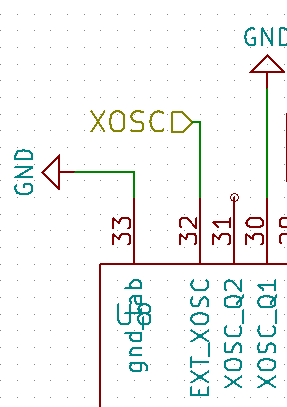Other Parts Discussed in Thread: CC2541, CC1120,
I'm using the following configuration:
{CC112X_FREQ2, 0x6C}, //(0x2f0c) frequency configuration [23:16]
{CC112X_FREQ1, 0x80}, //(0x2f0d) frequency configuration [15:8]
{CC112X_FREQ0, 0x00},
That should set the carrier to 868.000000
The measured RF frequency is 934Mhz. I'm using an external clock verified at 32Mhz. The clock is generated by a pin on the CC2541. Is there a register setting to use an external oscillator? Would I have to modify the XOSC registers from their default?
Thank You


